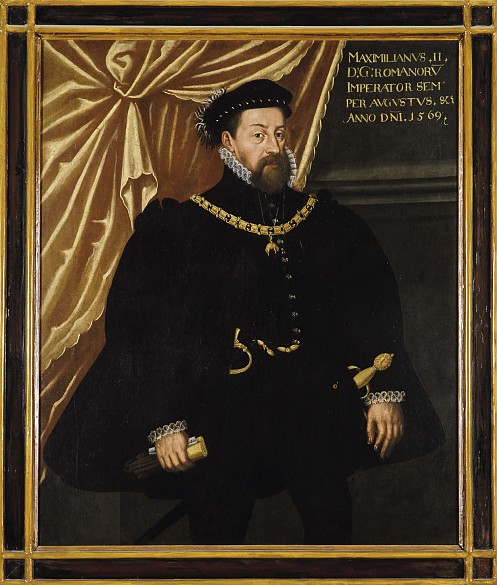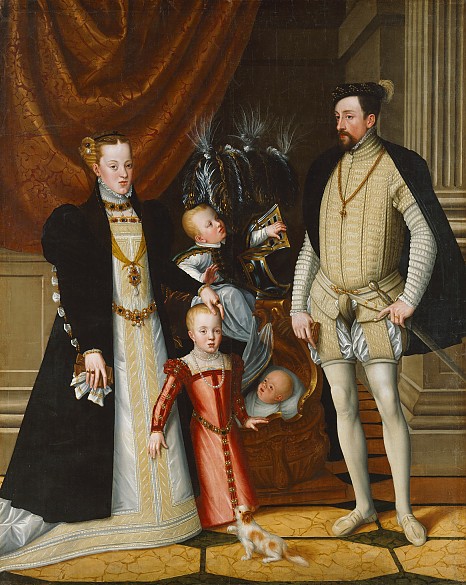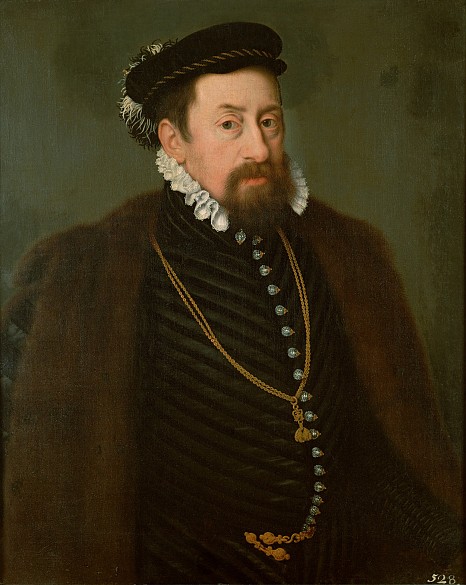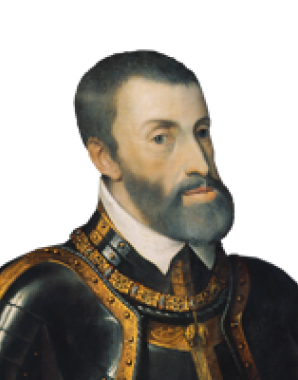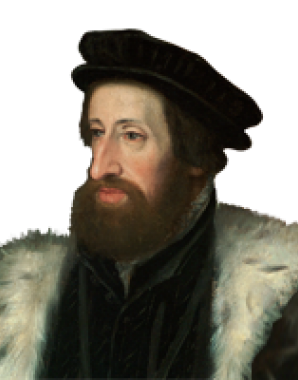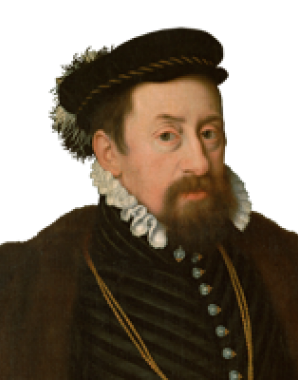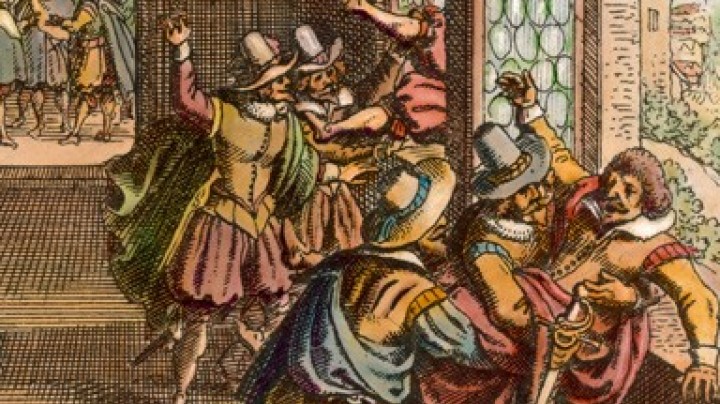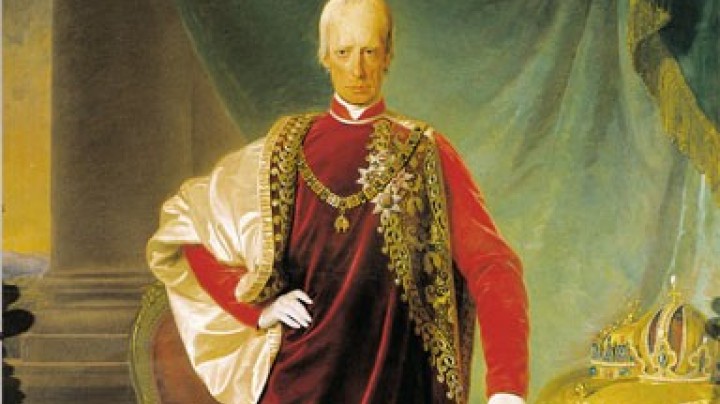Sympathetic towards Protestants: Maximilian II
The Habsburg emperors were all strict Catholics – with one exception: Maximilian II was not unsympathetic to the concerns of the Protestants.
Emperor Maximilian III am neither a Papist nor a Protestant, but a Christian.
Maximilian II stands out as an exception amongst the Catholic Habsburg rulers: even as a young man he had a relaxed approach to religious questions and was attracted to Protestantism. When suspicions were aroused in his father, Spanish relatives, and the Pope, he was married to his cousin Mary, who was a strict and pious Catholic, and sent to Spain. Although he officially remained loyal to the Catholic Church, he refused to receive the last rites before his death in 1576.
Emperor Ferdinand I was in fact to have been succeeded by Charles V’s son King Philip II, under whom the Spanish Habsburgs attained the peak of their world power. However, this intention had to be relinquished when the princes of the Holy Roman Empire, some of whom were Protestants, refused to accept a Spaniard as emperor. They preferred an Austrian, thinking that his geographical proximity would make him easier to control. This left the path open for Maximilian, who was elected Roman-German King in 1562 and Emperor following the death of his father Ferdinand I. Before his election, however, he had to swear an oath to remain a Catholic. Maximilian II strove to ensure peace and to act impartially in the field of politics and religion.
Maximilian was not sole heir to the Austrian lands, which his father had divided up between his three sons as a guarantee against the eventuality of his son becoming a Protestant. Maximilian ruled in Danubian Austria (present-day Upper and Lower Austria) and was king of Hungary and of Bohemia. He also made a bid for the royal crown of Poland but finally had to abandon this ambition. His foreign policy was dominated by resistance to the Turks, as his lands were constantly to some degree at war with the Ottoman Empire. In 1565 the situation escalated when a huge Turkish army marched on Hungary. In the sixteenth century, constant border hostilities necessitated concessions to the nobility: ‘The Turk is a blessing to the Lutherans,’ as a contemporary saying tersely put it. Maximilian granted the nobles freedom to practise their religion in accordance with the Confession of Augsburg. However, with the arrival of the Jesuits in Vienna in 1551 the Counter-Reformation had begun.
